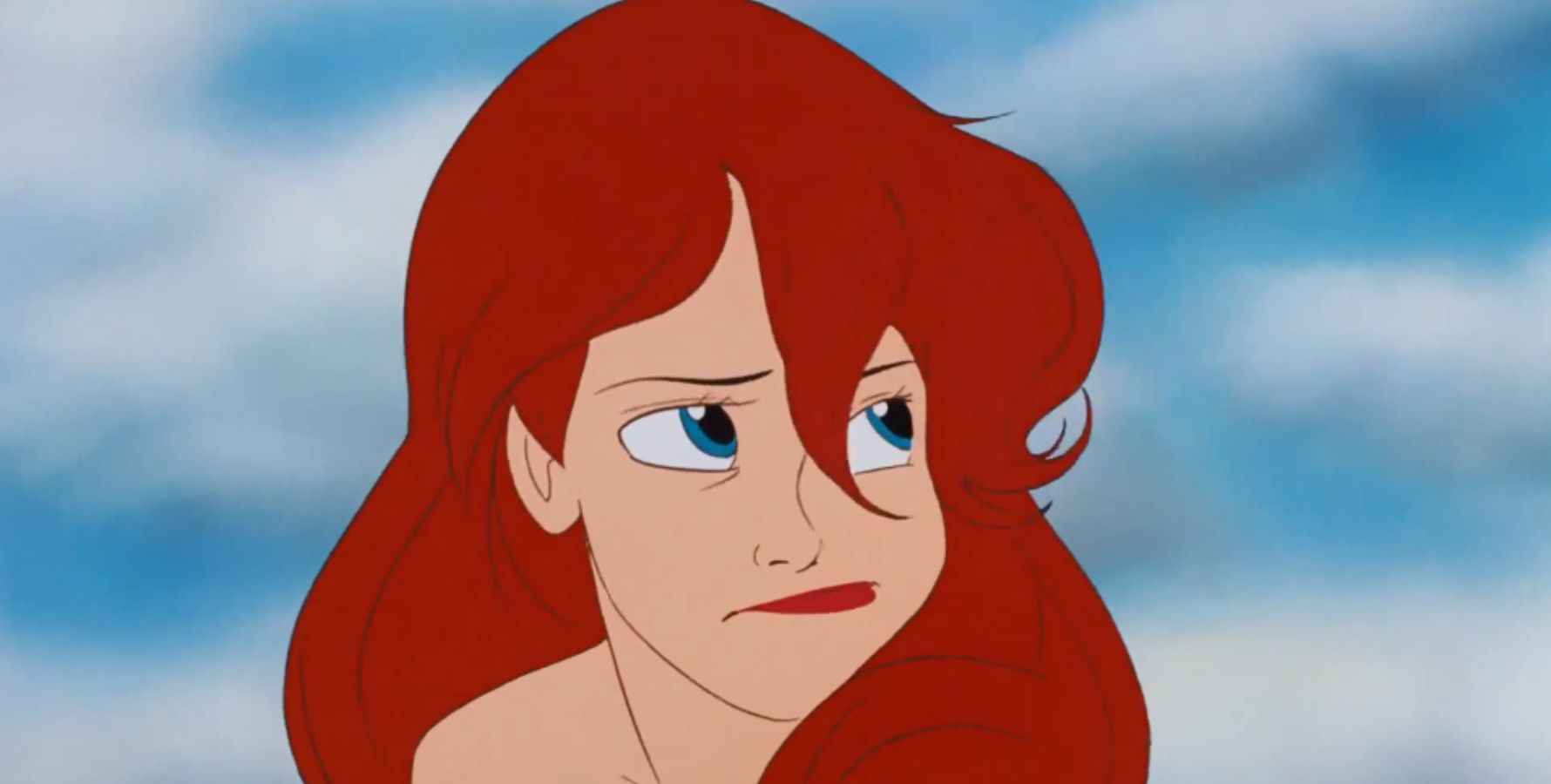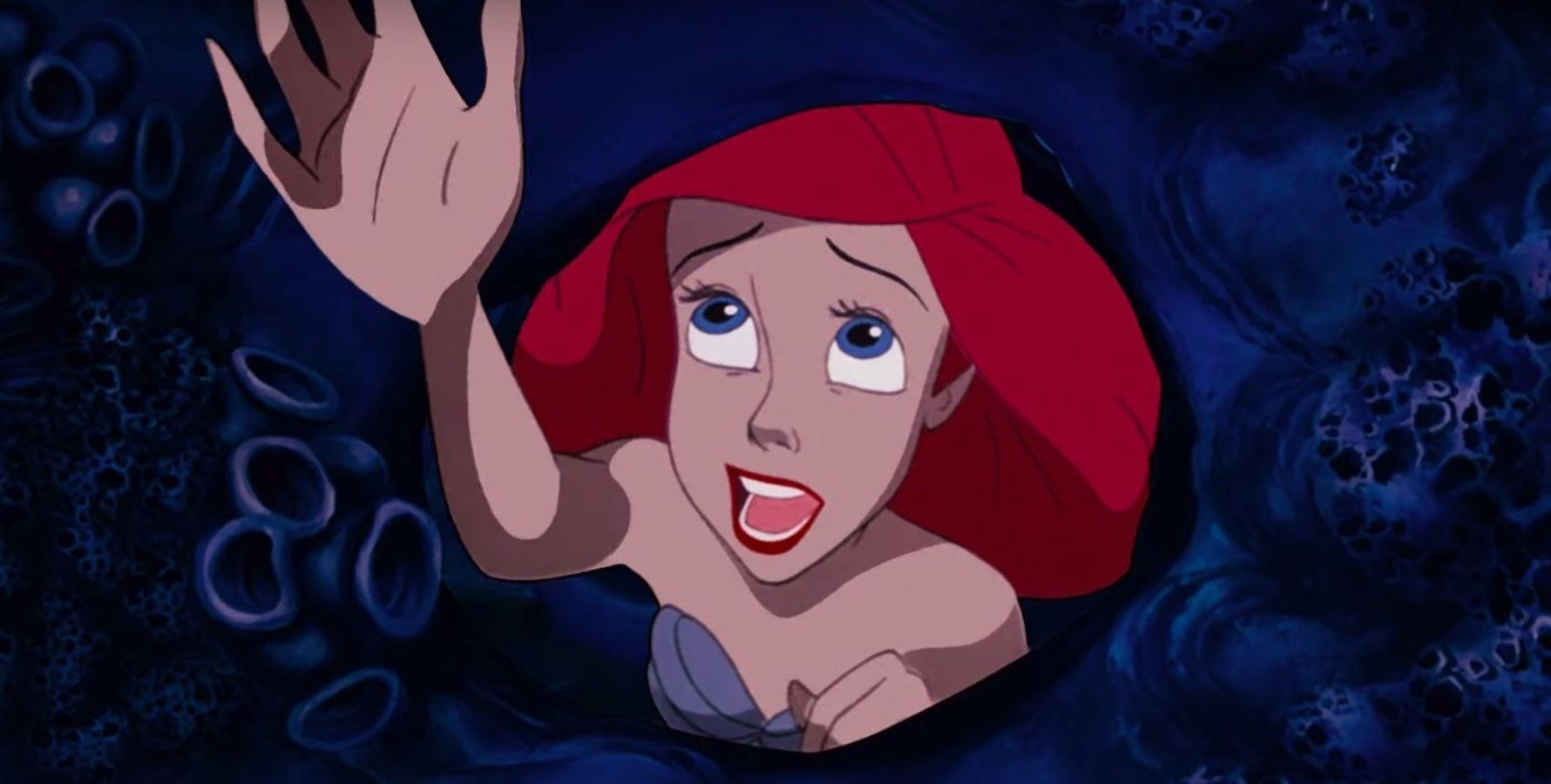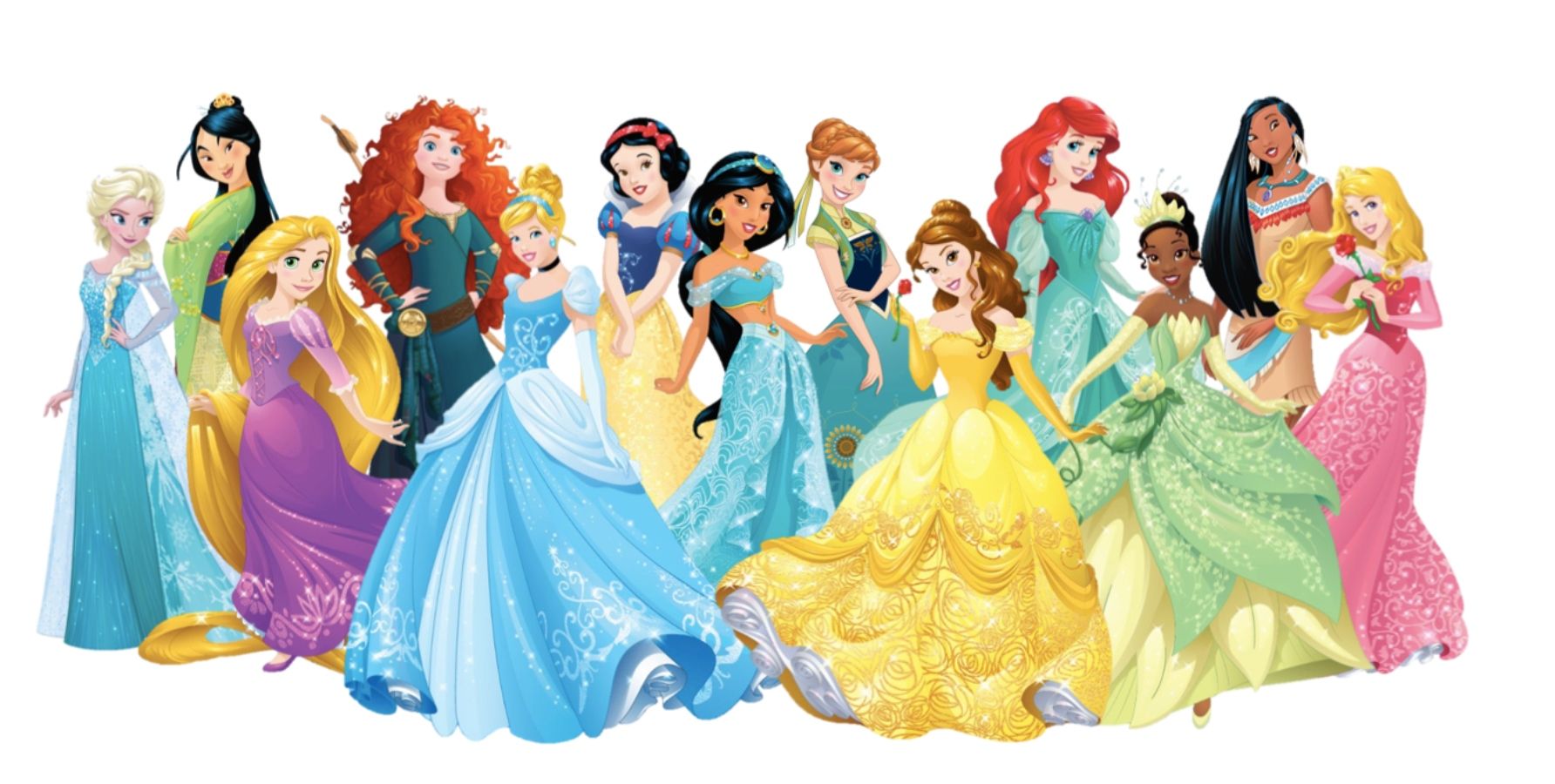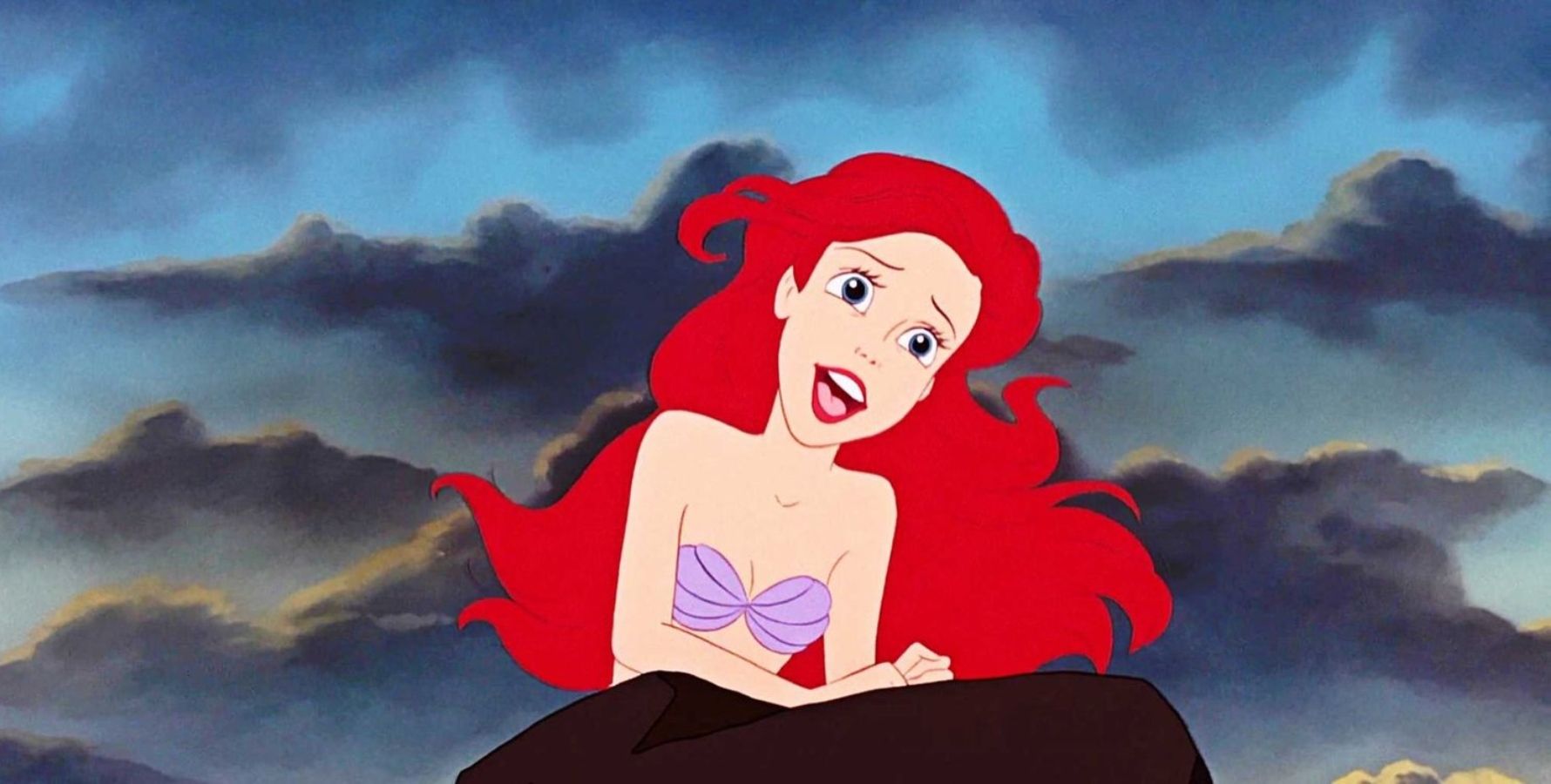Disney's The Little Mermaid came out just over 30 years ago now, in 1989, to rave reviews. After years of Disney movies with lukewarm reception that left the studio in a period known to some as the "Dark Ages," The Little Mermaid constituted the beginning of a sort of renaissance. The film recaptured the original magic of the studio, which some felt was lost when its founder died in 1966. It had a well-told story, beautiful music, and, perhaps most importantly, a fresh, spunky heroine that audiences could get behind.
Princess Ariel was a huge departure from the model Disney Princess of old. Where past princesses had been shy, demure, blushing maidens, Ariel was a fiery, feisty young woman with a determined heart and the guts to speak her mind. She became an instant favorite of young girls, and, despite the sheer number of characters to choose from, is still one of the most popular characters in Disney's pantheon of princesses.
However, in this new age of discussion and critique of our media, some people (young women and mothers especially) are concerned that Ariel doesn't constitute a strong role model for young girls. Some mothers are now saying that they will not show The Little Mermaid to their young daughters because Ariel sets a bad example: She falls in love with a man, and then decides to change her whole body and give up her voice - which everyone around her praises as one of the most beautiful they've ever heard, to go to land and get a chance to be with him.
When you read the plot out like that, yes, it does sound bad, and even worse for parents who want their daughters to grow up as strong confident women who don't need a man (or a relationship) to be whole. However, if you look at the story a little closer, it becomes pretty clear that that's not the lesson being taught at all.
Ariel Doesn't Do What She Does for Eric
This is the main complaint in most feminist articles and discussion boards: That Ariel gives up her home, her fins, and her prized voice all for a man she's never met... but that's simply not true. The movie tells you at the very beginning, very plainly, where Ariel's priorities are. She loves humans. She loves humanity, human inventions, human culture; she is, essentially, a budding anthropologist-slash-archaeologist. She does not particularly care about music, at least, not as much as everyone around her seems to want her to. She completely forgets about a big concert she's been practicing to go hunt around a new shipwreck.
Is this irresponsible of her? Yes, but it does also paint a very clear picture of the world she lives in. Ariel has a passion, and it's a passion that her family does not support or nurture. Instead, they try to force her to take up another hobby that they think is more suited to her, being music. Ariel is then forced to keep her hobby a secret, and, when her father finds out about her little treasure trove and destroys it, she is driven into the arms of the much shiftier Ursula in order to fulfill her dreams.
Yes, it seems that Ariel's crush on Eric is what drives her to become human, but it's really not the main force and that's just what Ursula assumes. While the attraction is a key motivator for Ariel, what Ursula promises her is something she's wanted for a long time; to be human. And she doesn't go to Ursula to seek it out until her father destroys the only scraps of that fantasy she had already managed to save for herself.
Ariel doesn't change who she is to be loved by a man, she goes to desperate measures to become who she's always wanted to be because she didn't have the support she needed from her family in the first place.
You Have to Take the Movie in Context
None of this is to say that there aren't still problematic aspects to the story. The optics of a young woman literally giving up her voice still aren't great, and sixteen is still incredibly young to be married off to some prince. However, once you take that main protest away, it becomes easier to see this movie for what it is: Disney's first feminist stepping stone.
Ariel was a massive departure from Disney's previous princess model. Before her, the only other princesses were Snow White, Cinderella, and Aurora, and while those princesses have their own merits as well, they were all pretty much cut from the same cloth: Demure, passive, kind young women, who while they do what they can to be freed from their grim destinies, are ultimately at the mercy of the story and their prince to gain their happy endings.
Ariel is the first princess to actively shape her own destiny. She rescues Prince Eric from drowning; she makes the deal with Ursula; she dives into the ocean to save her prince from marrying the wrong woman. She's incredibly headstrong and impulsive, but in 1989, that impulsiveness was a refreshing take on what a character like her could be.
She, and all the other Princesses, for that matter, each have their own share of non-model behavior, from Snow White's passivity to Tiana's one-track mind. But putting them all together and looking at what traits they have in common - kindness, determination, and resiliency, to name a few - sends a far more powerful message.
Ultimately, as far as role models go, as long as children are also watching other, later Disney Princess movies and learning the more advanced lessons that their heroines teach, there is no harm in them loving Ariel, too.
Ariel's Impulsiveness Was a Good Thing
Ariel's impulsiveness (as well as her headstrong attitude) gave her character more depth and realism: All good characters are flawed. The three princesses preceding her didn't really have flaws in the same way as their movies tended to highlight the issues of those around them instead. If any of them had weaknesses, they were minuscule and had no effect on the plot of the story. Ariel was different. Being impulsive doesn't make her a bad role model: It makes her a person.
People who blindly write off Ariel simply because she acts impulsively aren't considering the value of good storytelling. Because Ariel is an active agent in shaping her story, she needs to have flaws to learn from in order for a plot to exist. It's how those flaws are framed that is truly important. Ariel is impulsive, yes - but that impulsiveness gets her into trouble more than once in the film, and that link is made abundantly clear. We know Ursula is a villain. We know it's a bad idea for Ariel to ask her for help. But learning this lesson for herself is part of Ariel's journey.
Learning that lesson is also important for the children going on Ariel's journey with her. Ultimately, stories are told so that we can learn from them and interpret the world around us a little easier. That has been their purpose from the beginning of time. Part of what helps facilitate that learning, as an English student or teacher will tell you, is discussion. There is always room to discuss the things a child is watching with them, in fact, it helps them to learn.
So don't be turned off of The Little Mermaid from how the plot looks at first glance, and don't hate on Ariel for being a well-rounded character. The movie has a great message about the importance of love and support from those around you, and Ariel is still a great role model for young girls to look up to and learn from. All they need is a little help from people who understand her story a little better.




